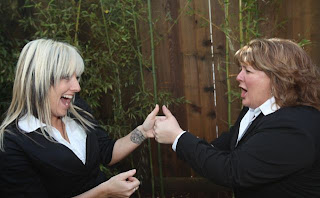A new survey from CMHC says the vast majority of Canadians renew their mortgages with their original lender, but you can save thousands over the life of a mortgage by looking at competing rates from competing institutions and mortgage brokers.
Are the banks doing an incredible job of retaining customers or are Canadians just too lazy to shop around when renewing their mortgages?
One finding of a survey by Canada Mortgage and Housing Corp. released this week was that 89% of consumers renewing their mortgage stay with the same financial institution. And 68% stay when they are doing a refinancing.
“They stay with the lender because of rate and they leave the lender because of service,” says Pierre Serré, vice-president, insurance product and business development, with CMHC.
Consumers are more aggressive shoppers when they are seeking a mortgage to buy their first home than they are upon renewal. Only 57% of first-time buyers took out their mortgage with their existing financial institution.
Rob McLister, a mortgage broker and editor of Canadian Mortgage Trends, says the banks are doing more to retain customers but there is a pretty good chance you won’t get the best deal if you renew automatically.
“Most of the time people do some rudimentary research before they go back to their lender. Not so long ago people would just take the renewal letter, sign it and send it back. It still happens but not as much anymore,” he says.
Mr. McLister says the banks “are not as stupid” now and when they send out renewal rates they have special offers. The posted rate on a five-year fixed closed mortgage today is 5.39% but he’ll see clients get offers in the mail as low as 4.04% in a renewal letter. The problem is a broker could probably get you 3.59% — meaning you just left 45 basis points on the table.
On a $250,000 mortgage at 4.04% paid monthly and amortized over 25 years, the monthly payment would be $1,320.48, with the interest cost during a five-year term at $47,014.79. Chop the rate down to 3.59% and the monthly payment drops to $1,260.09 ,with the interest over the five years falling to $41,658.85.
If you were crazy enough, or lazy enough, to take the posted rate, you would pay $1,510.01 monthly for the same mortgage and your interest cost would jump to $63,201.92.
Let’s just say it pays to shop around. So why don’t more people do it?
There is a perception that it’s difficult to switch banks, plus it will cost you some money to switch. Yes, it’s a hassle but for $5,000-plus, count me in. As for the costs, the bank you are switching to will often cover your legal costs. Even if it doesn’t or say you face a discharge fee of $300, that’s small price to pay upfront.
Mr. McLister says if you change the terms of your mortgage and refinance, it could cost you as much $700 to switch, something you would have to do if you have a home-equity line of credit or have a collateral charge on your mortgage.
Elton Ash, regional executive vice-president with Re/Max of Western Canada and a long-time realtor, says for most people if the customer service is good, they stay.
“Unless the lender has really screwed up, they stay,” says Mr. Ash says. “It’s like realtors, not all of them charge the same fee. There are lots of discounters out there but it’s based on service levels more than costs and fees, if it’s relatively competitive.”
The banks are more competitive these days for existing customers. Part of the reason is it can cost a financial institution up to 30 basis points to attract a new customer, so why not just spend the money on retaining existing customers?
“We start calling customers in advance to remind them their mortgage is coming up,” says John Turner, director of mortgages at Bank of Montreal. “It is an increasingly competitive marketplace and customers are shopping. It’s in our interest to advise the customer of their options. That could include refinancing the mortgage overall.”
Farhaneh Haque, regional manager of mobile mortgage specialists with Toronto-Dominion Bank, says her bank starts calling customers as much as 120 days before renewal to discuss options.
“This all about relationships, they are not going to up and leave for a five-basis-point difference,” Ms. Haque says.
She’s right. A 0.05 percentage point is not a great reason to sever your relationship. But renewal time is a great time to test your relationship with your bank and get it to show you some love — or a better rate.
So Who is doing the work finding you the best rate??? As a mortgage broker we can shop for the best rates from over 50 different lenders, capatalizing on rate specials and offers. A service a bank cannot offer.......

